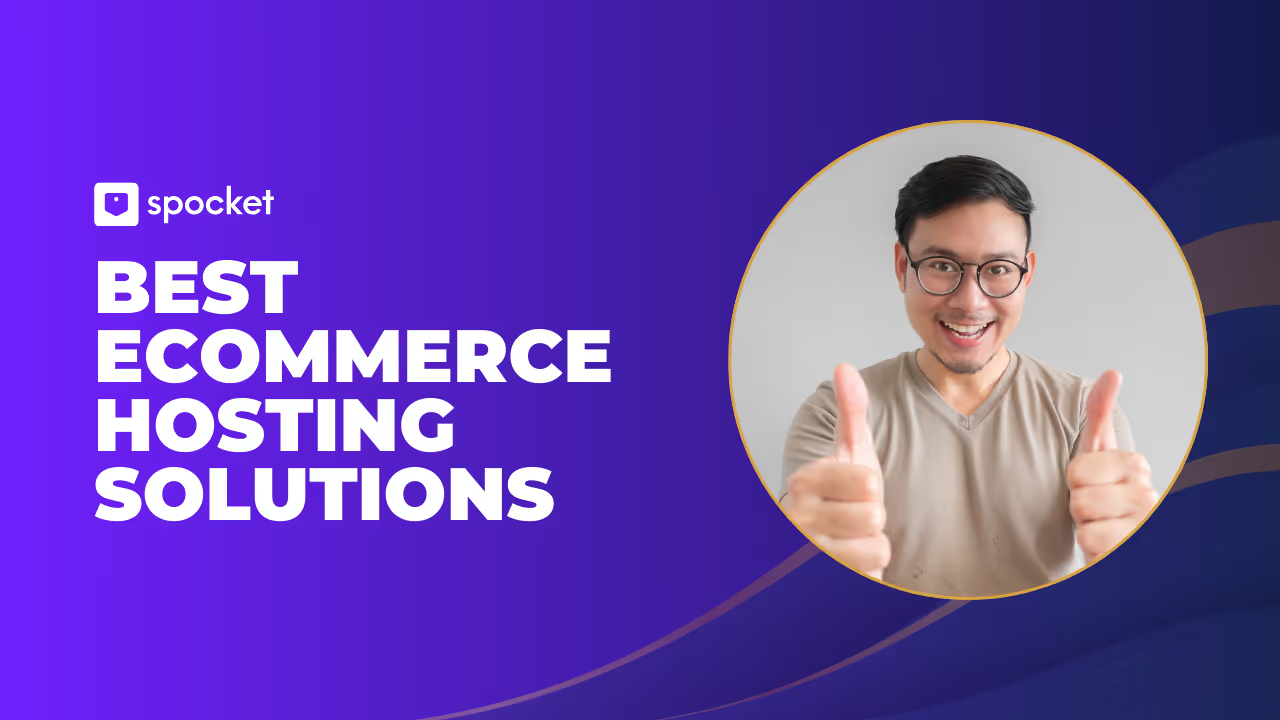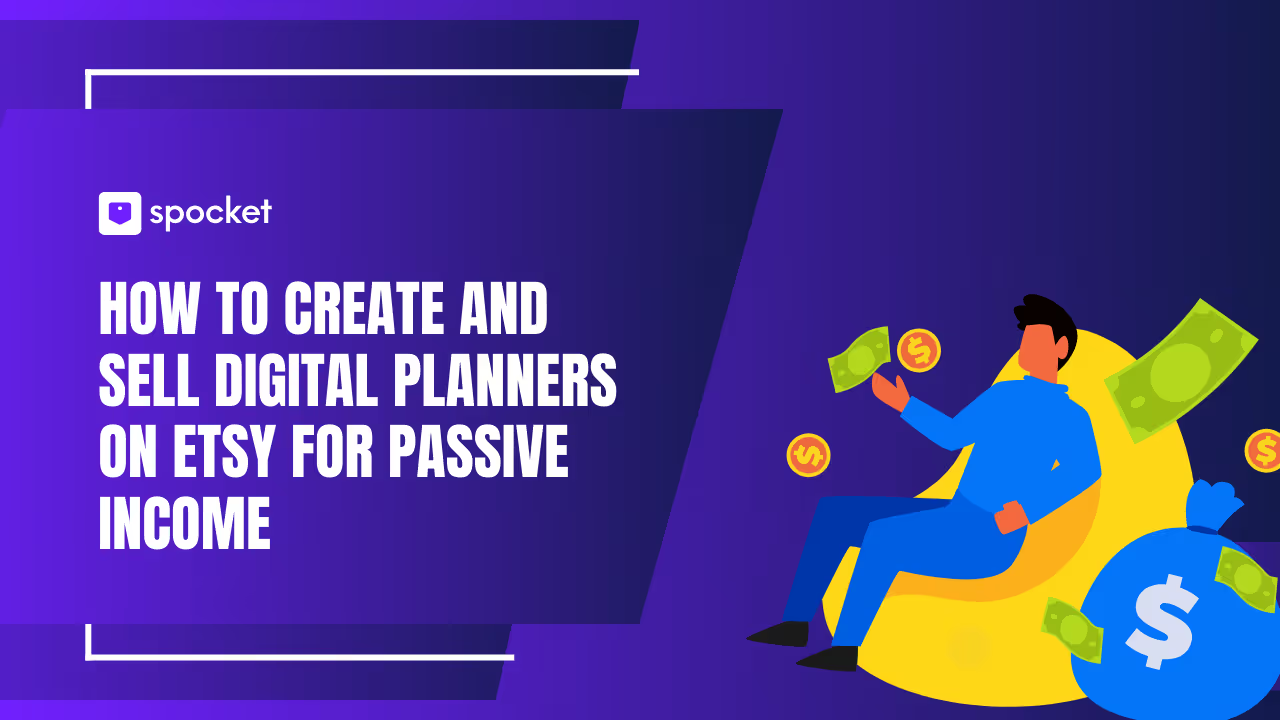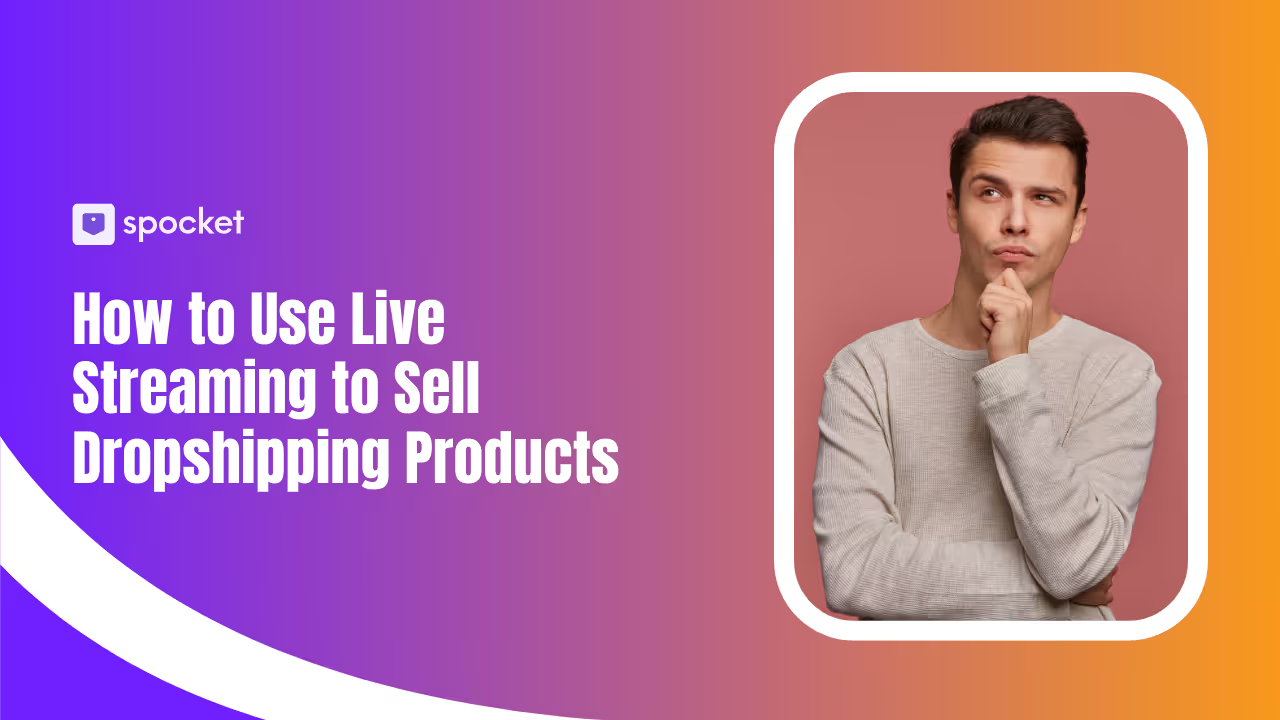Best Ecommerce Hosting Solutions
Explore the best ecommerce hosting solutions for your online store. Learn about key features, pricing, and top providers to optimize your website’s performance.


Choosing the right hosting solution for your e-commerce store is one of the most important decisions you'll make as a business owner. The Best Ecommerce Hosting Solutions can make a world of difference in how fast your store loads, how secure it is, and how well it scales as your business grows. Whether you are just starting your online store or looking to improve your current hosting, the right hosting solution is crucial for a seamless customer experience and maximizing your store’s performance.
In this article, we will explore the Best Ecommerce Hosting Solutions, diving into their features, benefits, and pricing. From platforms like Shopify to specialized options like Spocket, we’ll help you choose the right hosting solution that fits your business needs, scale, and budget.
Key Features to Look for in Ecommerce Hosting
When selecting an ecommerce hosting provider, there are key features to consider. These features will directly impact the speed, security, scalability, and overall experience of your online store.
Speed and Performance
Why Website Speed is Crucial for E-commerce
In today’s fast-paced world, a slow website is a major deterrent for potential customers. Studies have shown that 40% of shoppers will abandon a website if it takes more than 3 seconds to load. Website speed affects not only user experience but also conversion rates. The faster your website loads, the more likely customers are to stay, browse, and make a purchase.
Impact on User Experience and Conversions
A fast-loading site ensures that customers have a smooth and enjoyable shopping experience. A delay in loading time can result in frustration and increased bounce rates. When your store is optimized for speed, your customers are more likely to return and make repeat purchases.
Security and Reliability
Importance of SSL Certificates and Data Encryption
Security is paramount in e-commerce, especially when it comes to protecting customer data. An SSL (Secure Socket Layer) certificate encrypts data between your website and your customers, ensuring that sensitive information such as credit card details are kept safe. Most top ecommerce hosting solutions provide SSL certificates to ensure secure transactions and maintain customer trust.
Uptime Guarantee and Server Redundancy
Reliability is equally important as security. The best ecommerce hosting providers offer an uptime guarantee, ensuring your store is accessible to customers 99.9% of the time. Server redundancy is also key—if one server goes down, another can step in to prevent downtime and service interruptions.
Scalability
How Hosting Needs Grow with Your Business
As your online store grows, so will your hosting needs. A good hosting solution should be scalable to accommodate increased traffic, additional products, and more complex features. Look for hosting providers that offer flexible plans or cloud-based hosting, which allows for easy scaling.
Choosing Scalable Hosting Solutions for Long-Term Success
Scalability ensures that as your business grows, your hosting can easily accommodate the changes without affecting performance. For instance, cloud hosting or dedicated servers provide the ability to scale resources based on the volume of traffic and demand.
Customer Support
24/7 Availability and Dedicated Support Teams
Customer support is essential when technical issues arise. Whether it’s a problem with site performance or a technical question about your hosting, a reliable support team can make all the difference. Look for hosting providers that offer 24/7 support through various channels like live chat, email, or phone. Businesses that outsource customer service can also benefit from dedicated teams trained to handle a wide range of customer inquiries efficiently.
Importance of Responsive Technical Support
Responsive technical support ensures that any issues can be resolved quickly, minimizing any downtime or disruptions to your store’s operations. Fast response times and expert support are vital to keeping your store running smoothly.
Cost and Pricing Plans
How to Balance Features and Cost
When evaluating ecommerce hosting solutions, it's important to strike a balance between price and the features offered. You don’t want to overpay for features you don’t need, but you also want to ensure you’re getting the performance, security, and support necessary for your store’s success.
Understanding Pricing Tiers and Value for Money
Most hosting providers offer tiered pricing based on features, storage, and traffic limits. Consider your store’s current size and future growth potential when choosing a plan. Many hosting providers also offer scalable pricing, allowing you to upgrade as needed without having to migrate your site.
Top Ecommerce Hosting Solutions
1. Spocket

Spocket is a leading ecommerce hosting solution designed to integrate with platforms like Shopify and WooCommerce. While primarily known for its dropshipping capabilities, Spocket offers hosting services that allow businesses to streamline product sourcing and sales, making it a powerful tool for ecommerce store owners.
Key Features
- Access to US/EU Suppliers for Faster Shipping: Spocket allows you to source products from local suppliers, which means faster shipping times for your customers.
- Automatic Inventory Syncing and Easy Order Management: Keep track of inventory and manage orders directly through Spocket’s platform.
- Real-time Order Tracking and Customer Support: Track customer orders in real-time and receive top-notch support from Spocket’s team.
Pricing
Spocket offers a free plan with limited features, while the paid plans start at $19 per month.
Pros and Cons
- Pros: Easy integration with Shopify and WooCommerce, fast shipping, excellent customer service. It also supports AliExpress dropshipping.
- Cons: The paid plans can be expensive for small businesses just starting out.
2. Shopify
Shopify is one of the most popular ecommerce platforms globally, offering reliable hosting along with an intuitive user interface. It’s ideal for entrepreneurs who want an all-in-one solution for setting up, running, and growing an online store.
Key Features
- Integrated Payment Gateway: Shopify provides a built-in payment gateway to accept payments securely.
- App Store: Shopify’s app marketplace allows you to add functionality to your store easily, such as advanced analytics, marketing tools, and integrations with services like Spocket.
- Easy Store Management: Shopify offers an easy-to-use dashboard that helps you manage products, customers, and orders seamlessly.
Pricing
Shopify’s pricing starts at $29 per month, with higher-tier plans offering more features.
Pros and Cons
- Pros: User-friendly, highly customizable, excellent for beginners and experts alike.
- Cons: Transaction fees unless using Shopify Payments, can be costly for smaller stores.
3. WooCommerce Hosting (via SiteGround)
WooCommerce hosting through SiteGround offers a seamless solution for WordPress users looking to set up an online store. This hosting solution is highly customizable and perfect for those who want control over their store’s design and functionality.
Key Features
- WordPress Integration: WooCommerce integrates smoothly with WordPress, allowing for a fully customizable e-commerce store.
- Customization Options: Choose from thousands of themes and plugins to personalize your store.
- Free SSL and Daily Backups: SiteGround provides SSL certificates and automatic daily backups to ensure your site remains secure and reliable.
Pricing
SiteGround offers WooCommerce hosting plans starting at $3.99 per month.
Pros and Cons
- Pros: Highly customizable, great for experienced users.
- Cons: Requires more technical knowledge, can be slower than fully-managed solutions.
4. BigCommerce
BigCommerce offers a comprehensive set of tools for growing your online business, from sales and marketing tools to advanced SEO features. BigCommerce is perfect for businesses that need flexibility and scalability without compromising on ease of use.
Key Features
- Multi-Channel Selling: Sell on various platforms like eBay, Amazon, and Facebook directly from BigCommerce.
- Advanced SEO Tools: BigCommerce comes with built-in SEO tools to help improve your store’s visibility in search engines.
- Customizability: With BigCommerce, you can design and customize your store to fit your brand’s needs.
Pricing
BigCommerce pricing starts at $29.95 per month.
Pros and Cons
- Pros: Excellent for growing businesses, advanced marketing tools.
- Cons: Higher pricing for smaller stores, a steeper learning curve.
5. Wix Ecommerce Hosting
Wix is a website builder that also offers ecommerce hosting solutions. It’s perfect for small businesses or those just starting out with an online store due to its drag-and-drop functionality and user-friendly interface.
Key Features
- Drag-and-Drop Builder: Wix’s intuitive builder lets you design your store with no coding skills.
- Flexible Templates: Choose from a wide variety of templates tailored for online stores.
- Payment Options: Wix supports multiple payment gateways, including PayPal and credit card options.
Pricing
Wix ecommerce hosting plans start at $23 per month.
Pros and Cons
- Pros: Easy to use, great for beginners, highly affordable.
- Cons: Limited scalability for larger stores.
6. A2 Hosting
A2 Hosting is known for its speed and performance. This hosting provider offers ecommerce solutions that are optimized for speed, ensuring that your online store loads faster, which is crucial for keeping customers happy.
Key Features
- Turbo Servers: A2 Hosting’s Turbo Servers provide enhanced speed for your store.
- Optimized for Ecommerce Platforms: A2 Hosting works well with popular ecommerce platforms like WooCommerce, Shopify, and Magento.
- 24/7 Support: They offer round-the-clock customer support to ensure your store runs smoothly.
Pricing
A2 Hosting’s pricing starts at $2.99 per month.
Pros and Cons
- Pros: Excellent speed, reliable uptime.
- Cons: The basic plans can be restrictive in terms of features.
7. HostGator Ecommerce Hosting
HostGator is an affordable hosting option for small to medium-sized ecommerce stores. It offers one-click installs for popular ecommerce platforms and reliable uptime, making it an excellent choice for budget-conscious business owners.
Key Features
- One-Click Installations: Easily install ecommerce platforms like WooCommerce and Shopify.
- Reliable Uptime: HostGator guarantees 99.9% uptime, ensuring your store is always accessible.
- Affordable Pricing: HostGator offers competitive pricing for small businesses.
Pricing
HostGator’s pricing starts at $2.75 per month.
Pros and Cons
- Pros: Budget-friendly, easy setup, good uptime.
- Cons: Limited scalability for growing businesses.
Factors to Consider When Choosing the Best Ecommerce Hosting
Website Traffic
As your traffic grows, your hosting needs will change. Make sure the hosting provider you choose can scale with your business, especially during peak times like holiday seasons or promotions.
Ecommerce Platform Compatibility
Your hosting solution should integrate smoothly with the ecommerce platform you use (e.g., Shopify, WooCommerce, BigCommerce). Compatibility ensures a hassle-free experience and saves time.
Technical Skills and Management
Consider whether you need a fully managed hosting solution or if you're comfortable with more hands-on management. Managed hosting solutions tend to be easier to use but come at a higher price.
Backup and Recovery
Choose a hosting provider that offers automatic backups and a disaster recovery plan. This ensures your data is safe and can be restored if anything goes wrong.
Best Practices for Optimizing Ecommerce Hosting
Ensuring Fast Loading Times
Optimize images, use caching, and choose a hosting provider with a content delivery network (CDN) to speed up your site.
Securing Your Online Store
Implement SSL certificates, firewalls, and regular security updates to keep your store and customer data safe.
Regular Maintenance and Updates
Regularly update your hosting platform and ecommerce software to ensure your site is secure and performing at its best.
Conclusion
Choosing the Best Ecommerce Hosting Solutions is essential for the success of your online store. From Spocket for seamless dropshipping to platforms like Shopify and BigCommerce, there are numerous hosting options available to meet the needs of businesses at any stage. By considering your specific needs, traffic, and budget, you can find the hosting solution that will support your store’s growth and ensure a smooth shopping experience for your customers.
FAQs About Best Ecommerce Hosting Solutions
What is ecommerce hosting and why is it important?
Ecommerce hosting is specifically designed for online stores, providing the infrastructure needed to store and manage your website’s data. It ensures fast, secure, and reliable performance for your store.
What features should I look for in the best ecommerce hosting solutions?
Look for speed, security (SSL certificates), scalability, great customer support, and competitive pricing. These features ensure your store runs smoothly, is secure, and can grow with your business.
How does Spocket integrate with ecommerce hosting?
Spocket integrates with platforms like Shopify and WooCommerce to streamline dropshipping. It automates inventory syncing and offers access to US/EU suppliers for faster shipping, enhancing product sourcing and order management.
How do I know which ecommerce hosting solution is right for my store?
Consider your store's size, traffic, and required features. Shopify and Wix are good for beginners, while WooCommerce offers more customization for those with technical expertise.
Can I scale my ecommerce hosting as my business grows?
Yes, many hosting solutions offer scalable plans to handle increased traffic, ensuring your store performs well as your business expands.
What is the difference between managed and self-managed ecommerce hosting?
Managed hosting handles all technical aspects for you, while self-managed gives you more control but requires technical knowledge to manage the server.
Are there free ecommerce hosting solutions available?
Yes, platforms like Wix offer free plans, but they often come with limitations. Paid plans offer more features and flexibility, especially for growing stores.
How do I optimize my ecommerce hosting for speed?
Optimize with image compression, caching, CDN, and fast server hosting. A good hosting provider will support these tools to ensure fast loading times.
Launch your dropshipping business now!
Start free trialRelated blogs

How to Create and Sell Digital Planners on Etsy for Passive Income
Learn how to sell digital planners on Etsy step-by-step. Create, list, price, and scale digital planners for passive income even as a beginner.

How to Use User-Generated Content (UGC) to Explode Your Sales
Learn how to use UGC for ecommerce to boost trust, conversions, and repeat sales with scripts, workflows, rights, and placement tips.

Video Commerce: How to Use Live Streaming to Sell Dropshipping Products
Learn live stream shopping for dropshipping with a step-by-step setup, scripts, product picks, tech stack, and conversion tips—powered by Spocket.


































